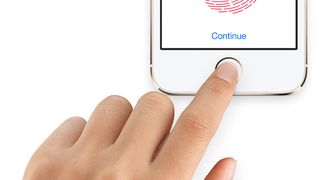Forget that banking password, HSBC blazes trail with voice and fingerprint login
HSBC customers will soon be using biometrics for online banking

HSBC has announced that it's rolling out biometrics – namely fingerprint and voice recognition – to customers in an effort to bolster security with its online banking services.
The idea is you can forget your passwords (literally) and memorable questions (security questions based around memorable places, names and so forth) and just use your body for authentication instead.
The BBC reports that biometrics will be offered to some 15 million customers (which the bank notes is the "largest planned rollout of voice biometric security technology in the UK"), starting with those who bank with First Direct, and with HSBC's users following in the summer.
Fingerprint recognition is for iOS users as it will be delivered via Apple's Touch ID and the bank's mobile app.
Voice recognition, on the other hand, will be covered by Nuance (the firm which built the foundation for Siri's voice routines), and customers will simply establish their own voice print which future logins will be checked against.
Apparently the system will make use of over 100 unique vocal and physical properties, such as the cadence of speech, pronunciation, shape of the larynx and nasal passages.
Copes with colds
However, the bank promises it won't be foxed if a user should come down with a bug.
Are you a pro? Subscribe to our newsletter
Sign up to the TechRadar Pro newsletter to get all the top news, opinion, features and guidance your business needs to succeed!
Joe Gordon, UK head of customer contact at HSBC, told the Beeb: "We will be able to cope with people who have got colds or slight impediments. Things such as the size of your mouth or your vocal tract don't change. Neither do your cadence or your accent when you've got those little colds."
Expect more banks to follow down this path, although some already have to a limited extent – Barclays does voice recognition but only for businesses at the moment.
Currently First Direct customers using online banking can login using a simple password and access limited functions, but if they want to do things like make payments, they must login with a secure key (a little number pad device which provides a PIN number sent directly from the bank as a second factor of authentication).
We'll be seeing a lot more of biometrics not just in the banking world, with biometric authentication expected to kill off the traditional password (and its often horrible lack of security given some of the passwords people choose, and then reuse).
Darren is a freelancer writing news and features for TechRadar (and occasionally T3) across a broad range of computing topics including CPUs, GPUs, various other hardware, VPNs, antivirus and more. He has written about tech for the best part of three decades, and writes books in his spare time (his debut novel - 'I Know What You Did Last Supper' - was published by Hachette UK in 2013).
Most Popular

